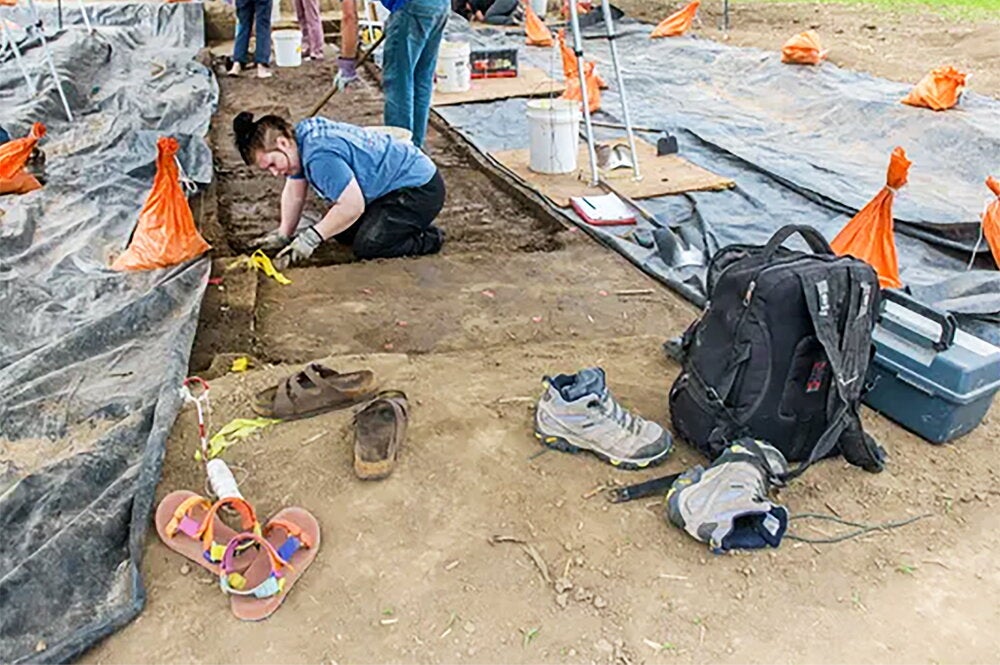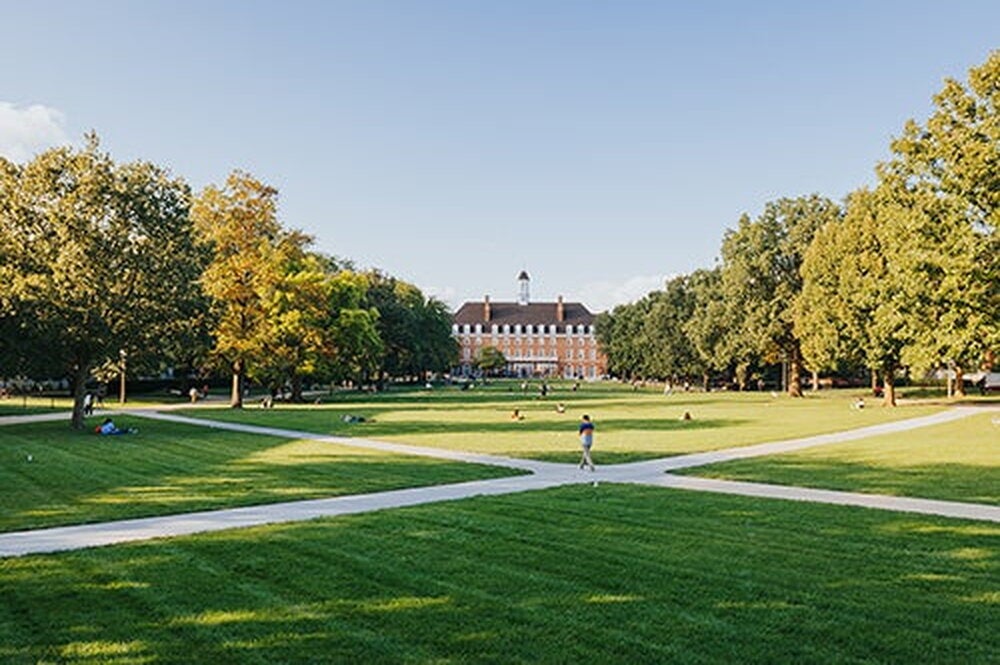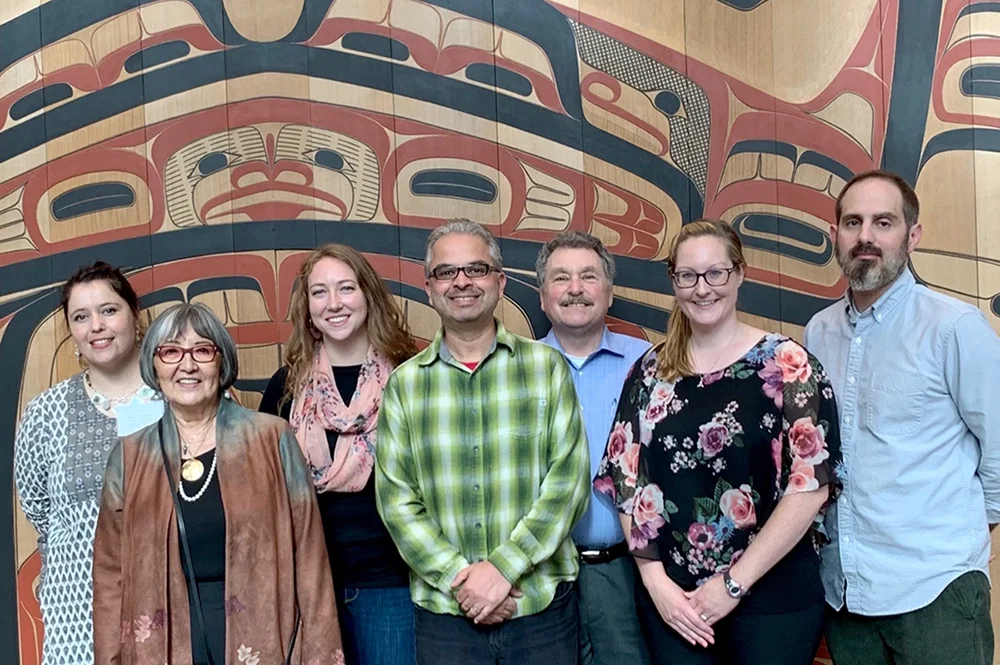
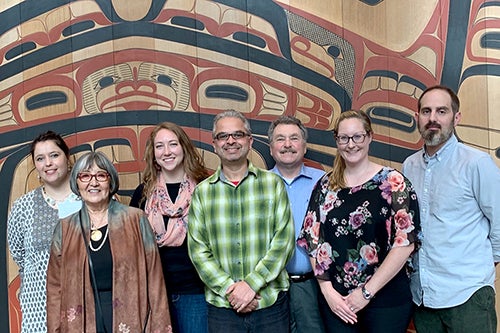
(Photo courtesy Sealaska Heritage Institute.)
Researchers investigated the relationship between historical traumatic events experienced by Alaska Native communities and epigenetic markers on genes that previous studies have linked to trauma. The new study found a similar pattern among Alaska Native participants, with specific epigenetic differences observed in those who reported experiencing the most intense symptoms of distress when reflecting on historic losses.
The study also found that individuals who strongly identified with their Alaska Native heritage and participated in cultural activities generally reported better well-being. The new findings are detailed in the International Journal of Health Equity.
The study is the result of a close collaboration between the scientists and members of two Alaska Native communities. The Native Nations guided the design and interpretation of the study and retain control of all of the data, in accordance with principles of Indigenous data sovereignty, said Ripan Malhi, a professor of anthropology at the University of Illinois Urbana-Champaign and corresponding author of the new study.
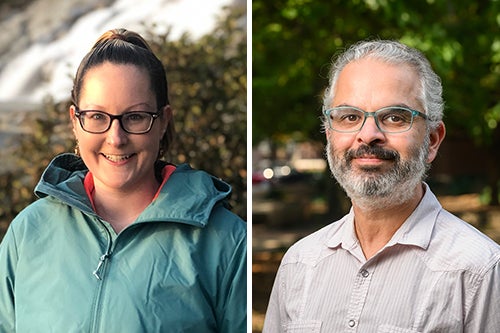
While DNA sequence remains stable throughout the lifespan, small chemical modifications to specific genes can turn up or turn down the expression of those genes, said study lead author Mary LaVanne, who conducted the analysis while a postdoctoral researcher at the U. of I.
“These epigenetic modifications are often studied in response to severe changes in lived environments,” LaVanne said. “Epigenetic alterations can persist throughout the lifespan and are sometimes maintained over multiple generations.”
Research on epigenetic changes in response to trauma is in its infancy, but studies involving other groups have found trauma-related modifications to genes involved in homeostasis, the immune response, the stress response, and other functions, Malhi said.
Native communities in Alaska have experienced centuries of disruptive violence, disease, and displacement, largely resulting from colonial expansion into the Americas and centuries of mistreatment well beyond the colonial era.
“Notorious examples of historical trauma in Native American and Alaska Native peoples include genocide and cultural genocide, forced relocation, and the boarding school era,” the authors write.
Such experiences often leave lasting psychological scars. For example, study co-author Rosita Worl experienced the trauma of being separated from her family as a young child. Worl is the president of Sealaska Heritage Institute, a nonprofit organization in southeast Alaska that works to perpetuate Alaska Native cultural traditions. Her Tlingit names are Yeidiklasókw and Kaaháni, in the Tlingit, Ch’áak’ (Eagle) moiety of the Shangukeidí (Thunderbird) Clan from the Kawdliyaayi Hít (House Lowered From the Sun) in Klukwan.
“At the age of six, I was kidnapped and taken from my grandparents, supposedly to an orphanage,” Worl said. She was taken to a Presbyterian boarding school, which used a system of mass punishment on children who “misbehaved,” requiring the other students to collectively beat them with wooden paddles, Worl said. She remembers lying in bed, staring at the mountains and wondering why she was there.
“It definitely left scars, and I do know that I suffered from trauma,” she said.
Among other harms, such experiences alter a child’s social and psychological development, Worl said. Having been deprived of a chance to learn how a family functions, such individuals often lack basic insights into parenting their own children.
“There is an impact on generations and generations of Native people,” she said.
To better understand how such experiences might affect gene expression, the research focused on one type of epigenetic change called DNA methylation. The study looked at whether people’s feelings of sadness, anger or anxiety when reflecting on traumatic events coincided with specific changes in DNA methylation, as previous studies in other groups have found. The second element of the study looked for evidence that Alaska Native cultural identification correlates with well-being.
“Participants completed surveys on cultural identification, historical traumas and general well-being,” Malhi said. Questions included the frequency of thoughts of historical traumas and losses and the symptoms experienced when reflecting on those events.
“Some of the symptoms that people reported included increasing sadness, depression, anger, or anxiety when thinking about different types of historical traumas,” LaVanne said. “They also may have disturbed sleep, feel distant from other people or experience fear that the traumas will happen again.”
The surveys took place in community clinics and centers including Alaska Native cultural centers, with community counselors on hand and available to participants, Malhi said.
The team also collected blood samples from the 117 Alaska Native participants to investigate methylation at more than 850,000 sites across the genome. The study found associations between the symptoms that arose when participants reflected on traumatic events in their own community’s history and DNA methylation of specific genes. Some of the methylated genes had been previously implicated in similar studies of traumatized groups, such as children in a Russian orphanage and people with major depression or PTSD after experiencing distressing events.
“For example, we found methylation at one of the genes identified in a similar study of early childhood deprivation,” LaVanne said. “Another methylated gene in our study had differential expression in individuals with PTSD in a separate study.
“We also found a positive association between cultural identification and Alaskan Native people’s feelings of general well-being,” she said. “The findings really complemented evidence from oral narratives, things participants were telling us about cultural identification and well-being.”
The findings are not proof that the historical traumas are causing the differences seen in DNA methylation, LaVanne said. But they add to the evidence suggesting that traumatic events leave a physical – as well as psychological – imprint on those affected and their descendants. The study also speaks to the factors that help people remain resilient and thrive.
“I always tell our kids, we come from strong people. We’ve survived rises of the sea, lowering of the seas, advances of the glaciers, retreats of the glaciers, suppression of our culture – we’ve survived it,” Worl said. “But, we have, you know, those who are still wounded.”
Ripan Malhi also is an affiliate of the Carl R. Woese Institute for Genomic Biology at the U of I.
The National Science Foundation supported this work.

